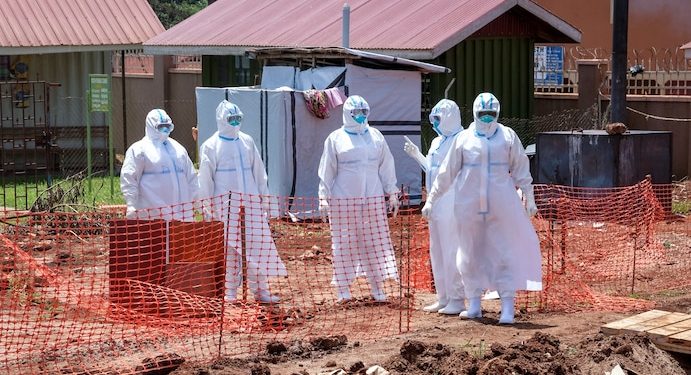The United States will immediately begin redirecting travelers from Uganda to five U.S. airports to screen them for the Ebola virus and will follow up with them while they are in the country, a senior administration official said Thursday.
The Centers for Disease Control and Prevention will conduct a temperature check and risk assessment on anyone who has been in Uganda over the previous 21 days, the incubation time of the deadly Ebola virus, the official said. State and local public health officials will follow up with them for 21 days after their arrival, the official said.
The airports are: JFK International Airport in New York, Washington Dulles International Airport, Newark Liberty International Airport, Chicago O’Hare International Airport and Hartsfield-Jackson Atlanta International Airport.
Most of the 145 people who arrive from Uganda each day already land at those airports. There are no direct flights from Uganda, where the outbreak began last month, to the United States.
Ebola Virus Disease is a rare and often deadlyhemorrhagic illness that causes fever, headache, muscle and joint pain, fatigue, loss of appetite and gastrointestinal symptoms as well as unexplained bleeding. Unlike covid-19, the virus is not transmitted through airborne droplets, but is highly contagious. It is spread through direct contact with bodily fluids, including blood, urine, feces, saliva or other secretions of a person who has symptoms or has died of the disease; infected animals or contaminated objects such as needles, according to the CDC.
There are no known cases in the United States, and the government believes the risk to the public here is low, according to the official. But the CDC told clinicians to be on the lookout for people with symptoms and to take a travel history from any patient who shows them.
Uganda is conducting exit screening for the virus, and other African countries in the region are also checking arrivals for symptoms of the virus.
Rebecca Katz, director of the Center for Global Health Science and Security at Georgetown University, agreed that the risk to the U.S. public is low and endorsed the government’s move to take preemptive measures.
“This is about putting solid surveillance practices in place,” she said. While the virus’s lengthy incubation period may make temperature checks minimally effective, she said, keeping tabs on anyone who has been to Uganda is a smart move.
Katz said the recent pandemic will probably temper the reaction to the Ebola news among some, but not all, of the public. “People are aware of infectious diseases. There is now a literacy around understanding the different types of transmission,” she said.
WP











